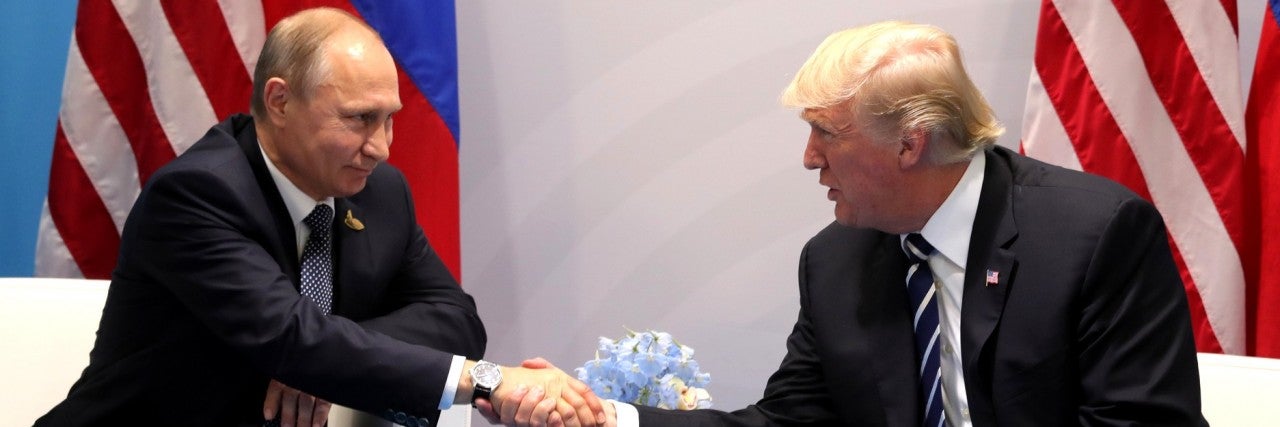July 11, 2018 — Jerusalem, Israel
By Eran Lerman
The full meaning of the Trump-Putin Summit next week in Helsinki is not easy to assess, especially as question marks still hang over the nature of Russian involvement in American elections. But from the perspective of an Israeli observer, the internal American dynamics, important as they are, rest outside the realm of diplomatic and strategic analysis. What matters to players in our own region is the possibility of a meeting of minds between the two leaders on issues that may have a direct bearing on our future, perhaps even on the prospect of growing tensions in Syria and a cycle of potential escalation that could lead to war.
For President Putin, the summit is an opportunity to regain in a dramatic fashion the international standing and legitimacy that he felt the West (and specifically, the Obama Administration and key European actors) conspired to deny Russia after its annexation of Crimea in 2013. He has good reason to believe that President Trump – and perhaps members of his team – do not ascribe the same level of importance to this issue; that Trump, as he openly stated, wants to see Russia reinstated as a member of the G-8; and indeed, that in terms of their straight-talk agenda, their summit might be easier for Trump to manage than some of the complex transactions with allies whom he suspects of having abused American goodwill all these years.
Still, there are things that the American side should and probably would ask in return. Most immediately, there is the drama now unfolding in southern Syria, which is also the reason for Prime Minister Netanyahu's visit immediately preceding the meeting with Trump. As Assad's brutal regime tightens a deadly grip on areas which until recently were still in rebel hands, two questions arise, one moral and humanitarian, the other of primary strategic importance. Will rebels face slaughter and subjugation, and will those in the border areas who worked with Israel in order to survive in the Syrian chaos be facing the ultimate consequences? And will Iran and Hezbollah now move, openly or under Syrian cover, to dominate southern Syria and threaten both Israel and Jordan?
Israel is having its own say on this, underlined by the steady pace of military action deep in Syrian territory: a signal to the Russian side that we mean what we say when we warn Assad of the consequences of playing Iran's game. But the message should also be well articulated on the American side, based upon the outcome of the Israeli visit. If Putin does not wish to see his client (and Russia's investment in Syria) go to ruin, it is in his interest to curb Iranian activity. The U.S. has powerful cards in this game in the form of a robust military presence in eastern Syria and a close relationship with the (largely Kurdish) Syrian Democratic Forces.
This should not be given away unless there is a clear and verifiable Russian commitment to uphold the tripartite (U.S.-Russian-Jordanian) agreement of last November, designed to prevent Iran from turning southern Syria into a springboard for the destabilization of Jordan (and for opening a new front against Israel). It may not be realistic to hope for the total removal of Iran and Hezbollah from Syria since Assad can no longer hold his country without them. But in key strategic areas, the Russians must use their leverage to ensure that Assad stays out of deadly trouble. This should very much be on the agenda in return for any relaxation of the pressure on Putin.
More broadly, this is an opportunity to "reset" the dialogue with Moscow on Iran by demanding Russian cooperation with the efforts to revive the sanctions regime (or at least secure a promise not to interfere directly against American policy). With so much at stake for the Russian side, this is not beyond reach. Moreover, in recent weeks there has been a dramatic shift in Russian-Saudi relations. The game between the two sides in the World Cup (which ended with a convincing 5-1 Russian win) provided an opportunity for Putin and Prince Mohammad bin Salman to come to a mutually beneficial agreement on oil prices that Putin needed to keep his country's economy in shape and maintain his own grip on the system. With Saudi Arabia on friendlier terms, he no longer needs to use Iran as his tool of disruptive politics in the region. This provides an opportunity for Trump to drive an effective wedge between Moscow and the mullahs in Tehran, whom the Russians never liked but for too many years played along with for pragmatic reasons.
This, of course, is Israel's strategic stake in the summit. All moral judgments aside, Putin is a powerful player – and for a variety of reasons, perhaps sentimental, mostly strategic (a healthy respect for Israeli military might), he does not want Israel as an enemy. Trump could build on this as he sets the price for his proposed gestures towards Russia.
Eran Lerman is the former deputy for foreign policy and international affairs at the National Security Council in the Israeli Prime Minister's Office. Prior to that, he served as director of AJC Jerusalem.


